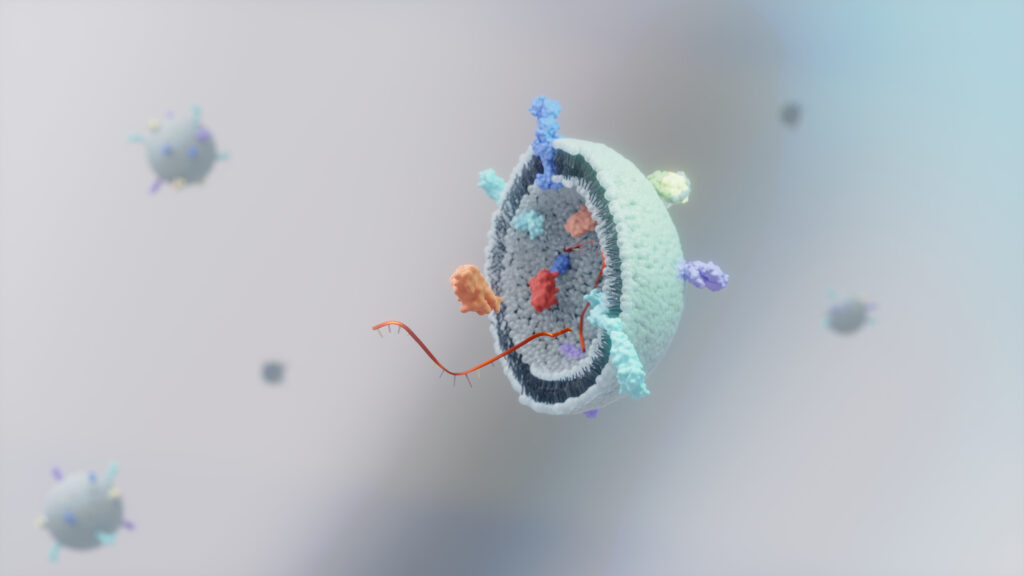The lungs play a critical role in our overall health, making it essential to understand and control lung-related diseases. The COVID-19 pandemic highlighted this urgency, as severe inflammatory responses mediated by immune cells were among the leading causes of lung tissue pathology and damage. Furthermore, uncontrolled immune responses can inflict harm on lung tissue in various infectious and non-infectious diseases. Therefore, achieving a balance in immune responses to maintain homeostasis is crucial.
Traditional immunosuppressive drugs primarily focus on dampening inflammatory responses, often without addressing the underlying issue of immune homeostasis. This is where mesenchymal stem cells (MSCs) come into play. Beyond merely suppressing inflammation, MSCs have the potential to restore immune balance and promote the regeneration of lung tissue. They accomplish this through the production of growth factors and their ability to differentiate into lung-related cells.
The communication between MSCs and immune cells following treatment for pulmonary diseases is a vital area of research. Understanding this interaction can provide valuable insights for developing clinical applications. Clinical studies have shown that MSCs can reverse fibrosis, enhance regeneration, promote airway remodeling, and reduce lung tissue damage. The therapeutic effects of MSCs are largely attributed to their ability to proliferate and differentiate, as well as their capacity to secrete exosomes that influence the function of lung and immune cells.
Another significant mechanism by which MSCs exert their therapeutic effects is through the modulation of harmful inflammatory responses. By interacting with both innate and adaptive immune cells, MSCs can shift the immune system towards regulatory and hemostatic responses. This makes them a promising avenue for future treatments, especially considering the challenges posed by various lung diseases.
In summary, the potential of MSCs in lung disease therapy offers hope for better management of inflammatory responses and tissue regeneration. As research in this area progresses, it may lead to more effective treatments that not only alleviate symptoms but also promote healing and restore lung function.
This insightful exploration into the role of mesenchymal stem cells in lung diseases is brought to us by a team of dedicated researchers: Ali Hazrati, Seyed Mohamad Javad Mirarefin, Kosar Malekpour, Arezou Rahimi, Arezou Khosrojerdi, Ashkan Rasouli, Susan Akrami, and Sara Soudi. Their collaborative efforts highlight the importance of interdisciplinary research in understanding complex health issues and developing innovative therapeutic strategies.


